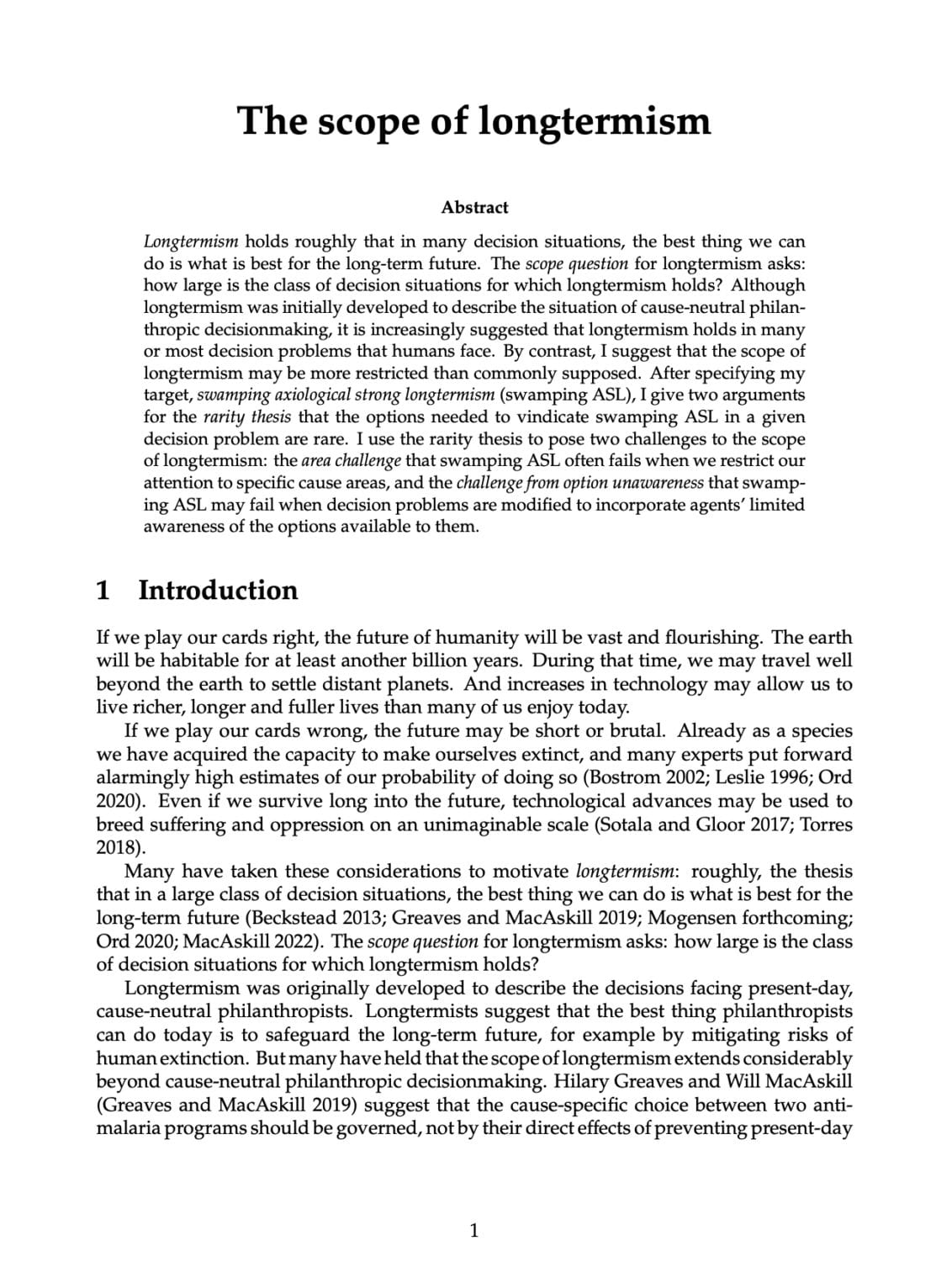The scope of longtermism
David Thorstad (Global Priorities Institute, University of Oxford)
GPI Working Paper No. 6-2021
Longtermism holds roughly that in many decision situations, the best thing we can do is what is best for the long-term future. The scope question for longtermism asks: how large is the class of decision situations for which longtermism holds? Although longtermism was initially developed to describe the situation of cause-neutral philanthropic decisionmaking, it is increasingly suggested that longtermism holds in many or most decision problems that humans face. By contrast, I suggest that the scope of longtermism may be more restricted than commonly supposed. After specifying my target, swamping axiological strong longtermism (swamping ASL), I give two arguments for the rarity thesis that the options needed to vindicate swamping ASL in a given decision problem are rare. I use the rarity thesis to pose two challenges to the scope of longtermism: the area challenge that swamping ASL often fails when we restrict our attention to specific cause areas, and the challenge from option unawareness that swamping ASL may fail when decision problems are modified to incorporate agents’ limited awareness of the options available to them.
Other working papers
A paradox for tiny probabilities and enormous values – Nick Beckstead (Open Philanthropy Project) and Teruji Thomas (Global Priorities Institute, Oxford University)
We show that every theory of the value of uncertain prospects must have one of three unpalatable properties. Reckless theories recommend risking arbitrarily great gains at arbitrarily long odds for the sake of enormous potential; timid theories recommend passing up arbitrarily great gains to prevent a tiny increase in risk; nontransitive theories deny the principle that, if A is better than B and B is better than C, then A must be better than C.
Estimating long-term treatment effects without long-term outcome data – David Rhys Bernard (Rethink Priorities), Jojo Lee and Victor Yaneng Wang (Global Priorities Institute, University of Oxford)
The surrogate index method allows policymakers to estimate long-run treatment effects before long-run outcomes are observable. We meta-analyse this approach over nine long-run RCTs in development economics, comparing surrogate estimates to estimates from actual long-run RCT outcomes. We introduce the M-lasso algorithm for constructing the surrogate approach’s first-stage predictive model and compare its performance with other surrogate estimation methods. …
Philosophical considerations relevant to valuing continued human survival: Conceptual Analysis, Population Axiology, and Decision Theory – Andreas Mogensen (Global Priorities Institute, University of Oxford)
Many think that human extinction would be a catastrophic tragedy, and that we ought to do more to reduce extinction risk. There is less agreement on exactly why. If some catastrophe were to kill everyone, that would obviously be horrific. Still, many think the deaths of billions of people don’t exhaust what would be so terrible about extinction. After all, we can be confident that billions of people are going to die – many horribly and before their time – if humanity does not go extinct. …

